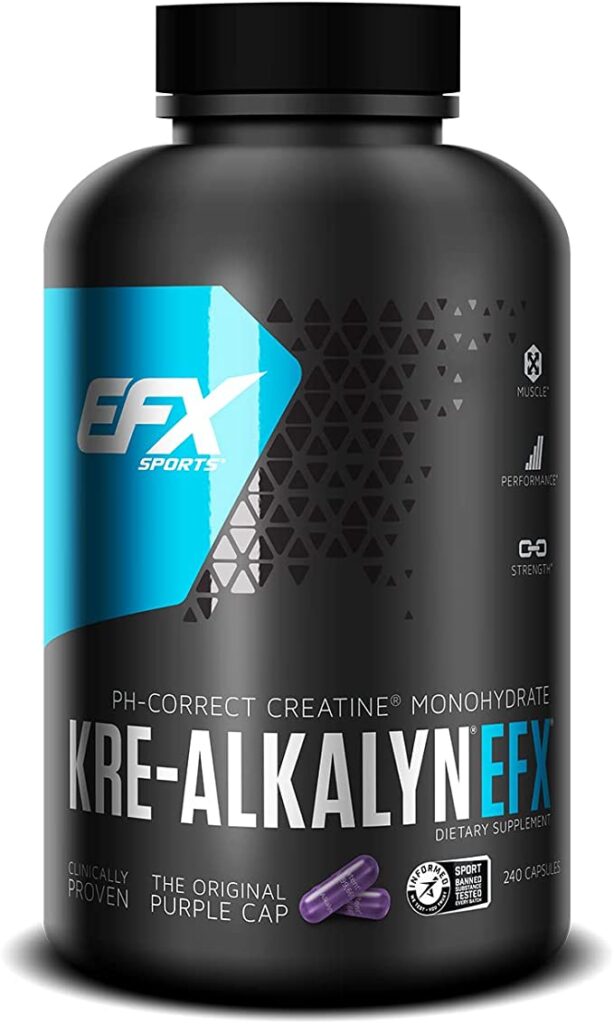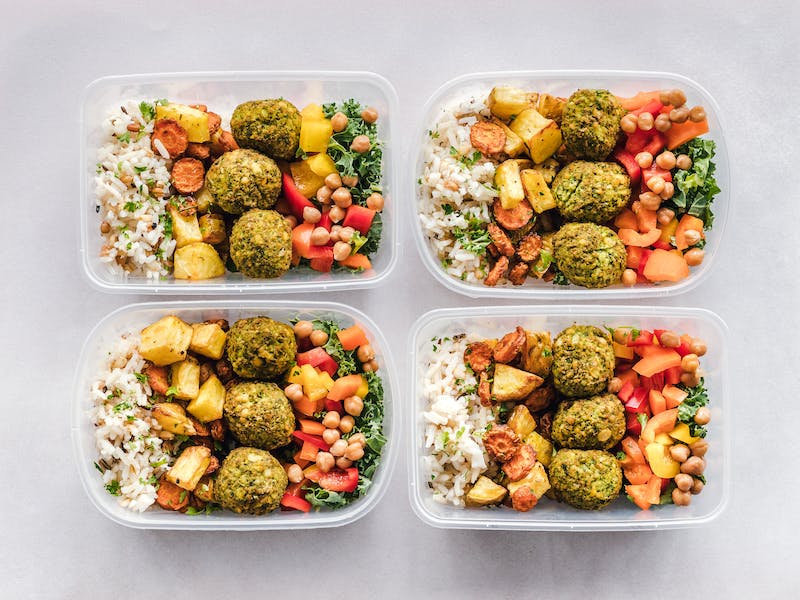Hello, beautiful souls! Today, we’re diving into a topic close to my heart: nutrition for strength training, particularly for women over 40. Now, I know what you’re thinking. “Is age a factor when it comes to fitness and nutrition?” Trust me, it is. Your nutritional needs evolve as you age, and it’s crucial to adapt your approach to strength training accordingly.
The Importance of Strength Training Over 40
Strength training is essential at every stage of life, but it becomes even more critical as we age. Why? For starters, it helps to combat muscle loss, a common issue that starts to creep in during our 40s. Strength training helps keep your muscles strong, improves bone density, reduces the risk of chronic diseases, and aids in weight management.
Studies such as one from the Journal of Strength and Conditioning Research show that strength training can increase muscle mass and strength in women over 40, reducing risks of osteoporosis and other age-related issues.

Why Nutrition Matters
Now that we understand why strength training is indispensable, let’s talk about its best friend: nutrition. Good nutrition can make or break your strength training routine. It helps with muscle repair, energy replenishment, and overall performance enhancement. But it goes beyond just fueling your workouts; proper nutrition also plays a pivotal role in recovery.
After a rigorous strength training session, your muscles have been taxed, and nutritional replenishment becomes critical for facilitating muscle repair. This is when nutrients like protein, healthy fats, and certain minerals and vitamins shine. They help accelerate the recovery process, allowing you to return to your training regimen quicker and more effectively.
By comprehending the full scope of nutrition’s role, you can better tailor your diet to support your workouts and your entire well-being. This becomes even more vital as we cross the age of 40, a period when our metabolic rates may slow down, and our body’s ability to recover quickly is not as it used to be. So, when you think about nutrition for strength training, consider it a comprehensive approach that aids your performance, recovery, and long-term health.
Protein
You’ll hear it from every corner: Protein is vital for muscle repair and growth. After hitting those weights, you need to give your muscles the building blocks they need to recover and grow stronger. Aim for lean protein sources like fish, chicken and plant-based options like legumes and tofu.
A 2021 study published in Nutrients found that older adults benefit from higher protein intake for muscle health compared to younger individuals.
Carbohydrates
Carbs are your primary energy source. Before a workout, a carb-rich meal can give you the fuel you need. Examples include whole grains like brown rice, quinoa, and starchy vegetables.
Fats
Healthy fats like avocados, nuts, and olive oil can aid long-term energy sustainability and regulation of hormones. Remember, fats are calorie-dense, so moderation is key.
Micronutrients: Don’t Ignore These
Iron
For women over 40, iron becomes increasingly important due to menopause and the stopping of menstrual cycles. Iron aids in oxygen transportation and can affect your workout performance.
Calcium and Vitamin D
These are vital for bone health. A Journal of Clinical Endocrinology & Metabolism study showed that calcium and vitamin D supplementation could improve bone density, which is especially important for women over 40 involved in strength training.
Timing is Everything
Pre-Workout Meals
Eat a balanced meal about 1-2 hours before your workout. Think protein, carbs, and minimal fats. An example could be a smoothie made with banana, protein powder, and almond milk.

Post-Workout Meals
After the workout, focus on protein and carbs to help recover muscle. A grilled chicken breast with a side of sweet potatoes works wonders. Eggs, oatmeal, and berries are another tremendous post-workout meal option.
Hydration
We can’t stress this enough. Stay hydrated before, during, and after your workouts. Water is essential for almost every bodily function, including muscle recovery.
Additional Tips for Special Diets
Vegan or Vegetarian?
No worries if you’re avoiding animal products! Plant-based diets can still provide all the protein you need for effective strength training and recovery. Lentils, chickpeas, and tofu are excellent sources of plant-based protein.
A recent study found that plant-based diets could offer similar muscle-building benefits as animal-based proteins when total protein and calorie intake were matched.
Gluten-Free?
If you’re on a gluten-free diet, it’s essential to ensure you still get enough carbs for energy. Rice, potatoes, and gluten-free grains like quinoa are excellent alternatives to wheat-based carbs.
Supplements: Yay or Nay?
While whole foods should always be the primary source of nutrients, supplements can also be a part of a well-rounded nutrition strategy.
Protein Powders
These are a quick and convenient way to meet your protein needs, especially post-workout. Whey protein is popular, but options like pea and soy are available if you’re lactose intolerant or vegan.
BCAAs
Branch-Chain Amino Acids (BCAAs) can aid muscle recovery and reduce muscle soreness. They can be especially useful for women over 40 who may experience slower recovery times.
Creatine
Yes, creatine isn’t just for men or younger athletes. This supplement can enhance muscle strength and give you extra push during workouts. My personal favorite is Kre-Alkalyn EFX. Its capsule form has no side effects like bloating or stomach discomfort. I take it every day, even when I’m not working out.

Creatine is the most researched supplement. A Journal of Sports Medicine study showed that creatine supplementation increases muscle strength and lean mass in older adults involved in resistance training and helps reduce the onset of sarcopenia.
Mind Your Hormones
Menopause can bring hormonal changes that affect your body composition and how you respond to exercise. Pay attention to balancing hormones like estrogen and progesterone through a balanced diet rich in nutrients like Omega-3s and antioxidants.
If you are showing signs of perimenopause, discuss the possible option of hormone replacement therapy with your Doctor. There are blood tests that help determine if you are a good candidate for HRT.
Rest and Recovery
Your muscles grow when you’re resting, not lifting weights. So, prioritize sleep and active recovery days where you engage in light exercise like walking or yoga.
Listen to your body. If you got little sleep the night before, take your workout easy. Pushing yourself when your body hasn’t recovered will do more damage than good. Taking an extra day or two of rest will fuel your body.
The Mental Edge
Last but not least, your mindset can significantly impact your fitness journey. Embrace the changes with age and view them as opportunities to grow stronger and wiser. A positive attitude can dramatically enhance adherence to a nutritional plan and overall training performance. Additionally, mental resilience is critical, particularly when navigating the physical changes accompanying aging. Instead of seeing the over-40 milestone as a limitation, use it as a motivational factor.
Challenge the societal norms suggesting you “slow down” due to age. Mental fortitude can help you persevere in your strength training efforts, even when your body feels less than optimal. It can also encourage you to make smarter nutritional choices, as you’ll focus more on long-term health benefits than quick fixes or fad diets.
Incorporating mental wellness into your overall approach to strength training and nutrition isn’t just an option; it’s necessary. Understanding that your mindset has the power to shape your reality can be a game-changer in your journey to a fitter, healthier you.
Your Personalized Plan
Every woman is different, and what works for one may not work for another. That’s why it’s crucial to consult a healthcare provider or a certified nutritionist to help tailor your plan.
Furthermore, as we age, our body’s needs can change drastically, making it even more important to get a customized plan. These factors should inform your nutritional strategy, whether hormonal changes, pre-existing medical conditions, or lifestyle preferences. Your healthcare provider can offer valuable insights into how you can adapt your nutritional intake to fit your specific needs, optimize muscle gain, and speed up recovery time. They can also provide tests and screenings to evaluate nutrient levels, hormonal balance, and other health indicators, which can be instrumental in shaping your personalized nutritional plan.
Recap and Takeaway
To recap, when it comes to nutrition for strength training for women over 40, focus on:
- Macronutrients: Protein for muscle repair, carbs for energy, and fats for long-term fuel.
- Micronutrients: Iron, calcium, and vitamin D are critical.
- Meal Timing: Eat balanced meals before and after your workouts.
- Hydration: Never underestimate the power of water.
- Special Diets and Supplements: Know your options and choose wisely.
Final Thoughts
Strength training is empowering, especially for women over 40. But remember, a balanced, nutrient-rich diet is equally important to maximize your gains and ensure optimal recovery. Be mindful of your macro and micronutrients, and recognize the importance of timing and hydration.
Your forties are a fabulous time to shine; optimal nutrition can make your strength training journey even more rewarding. So here’s to lifting more, recovering faster, and feeling better than ever!
So, ladies, let’s hit those weights and fuel our bodies correctly. After all, age is just a number, but good nutrition is timeless.
Disclaimer: This article is for informational purposes only and should not replace professional medical advice. Before starting a new diet or exercise program, please consult healthcare providers for diagnosis and treatment.



